Art & Tech
Would You Let an A.I. Insult You? An Art Installation in Germany Does Just That
The A.I. system was developed by artist couple MOTS to give honest impressions of viewers.
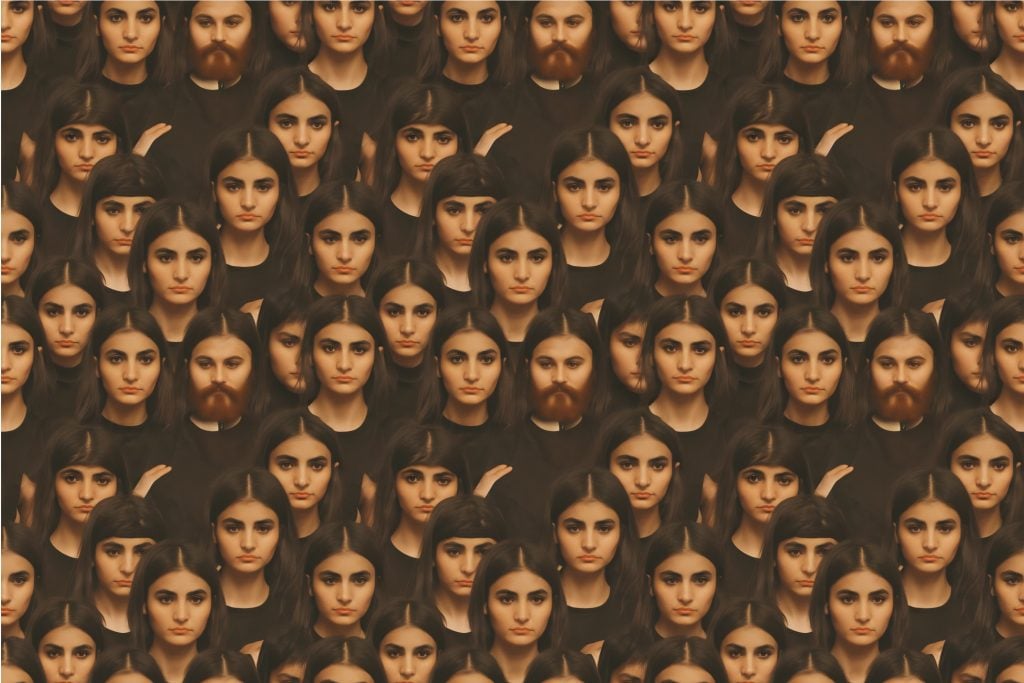
The A.I. system was developed by artist couple MOTS to give honest impressions of viewers.

Adam Schrader

The artist couple MOTS has developed an artificial intelligence (A.I.) installation that gives honest—and sometimes insulting—impressions of its viewers.
The installation, “AI & Me,” was first shown this summer at the Metropolink #09 Festival in Heidelberg, Germany, as an experiment into how far humans are willing to let themselves be judged by A.I. The installation is broken up into multiple parts, titled The Confessional, Siblings, and Ego.
The showstopper is The Confessional, a black wooden box complete with a camera and TV screen reminiscent of a police interrogation room, which viewers enter to be analyzed by an A.I. that provides feedback. Siblings incorporates that same A.I., but this time, it projects digital copies of some of the visitors it interviewed on nearby screens, but only “if it likes you,” according to Octavian Mot, one half of the artist collective with partner Daniela Nedovescu. Ego furthers complicates this idea of an alternative reality, creating false memories of the digital doppelgänger on a number of screens.
“Since the first show, The Confessional has seen more than 2,000 people, giving its raw and sometimes rude impression about what it feels regarding every one of them,” Nedovescu said in an interview with Artnet News. After its presentation in Heidelberg, the installation was included in another show in Berlin and is now on view at the B-Seite Festival in Mannheim, through December 9.
Nedovescu said she and Mot mostly works in film production, “but sometimes we roll up our sleeves” and build things in the workshop, usually machines designed to engage with the public. The pair was initially concerned the black box “might feel like an experimental artwork gone too far,” with potential participants reluctant to be evaluated by an A.I. they know nothing about. Instead, it became something of a social event, with visitors eagerly lining up to be evaluated and watch others be judged by the machine.
“What we witnessed at the first showing of the installation was quite unexpected. People were starting to queue to see what the machine’s impression about them might be,” she said. “They were taking pictures of their friends as they were being observed by the A.I.”
The collective has also released a short film, AI & Me, documenting the planning stages of the work and showing it in action. “People will cry when they understand we are nothing to the machine, just emotionless data,” Mot said in the film. At one moment, Nedovescu is seen sitting in front of the machine which superimposes the word “UGLY” over her face.
“For us, it felt like uncovering a universal truth: we’re all absurdly curious about what a bundle of code might gossip about our existential being,” Nedovescu said. She said some people became desperate to get the machine to give them a flattering description or compliment them, resorting to deception.
“Unfortunately for them, the machine showed no signs of wanting to be tricked and, most often, the people would end up being criticized even more harshly and without any consideration for their feelings by the A.I.,” Nedovescu said, calling it a “downer” for people’s ego.
See more images from the judgmental A.I. installation below.
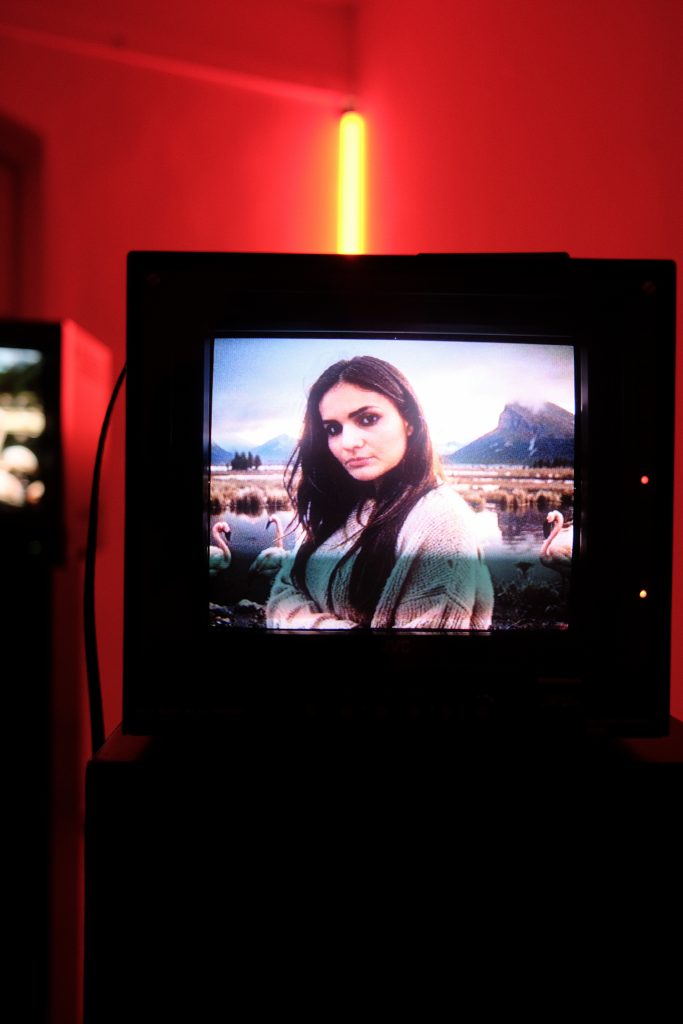
Installation view of Ego (2023) by MOTS. Photo: courtesy of MOTS.
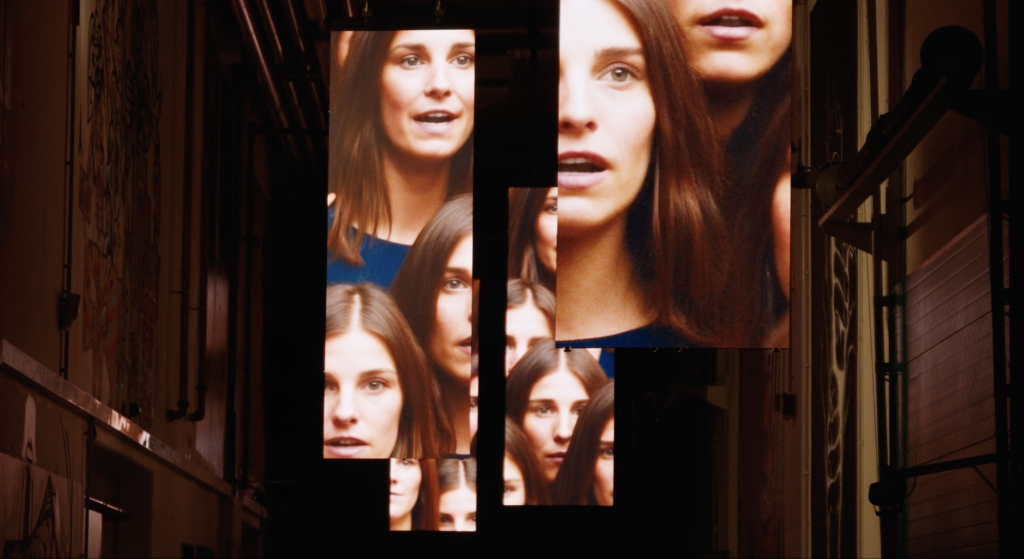
Installation view of Siblings (2023) by MOTS. Photo: courtesy of MOTS.
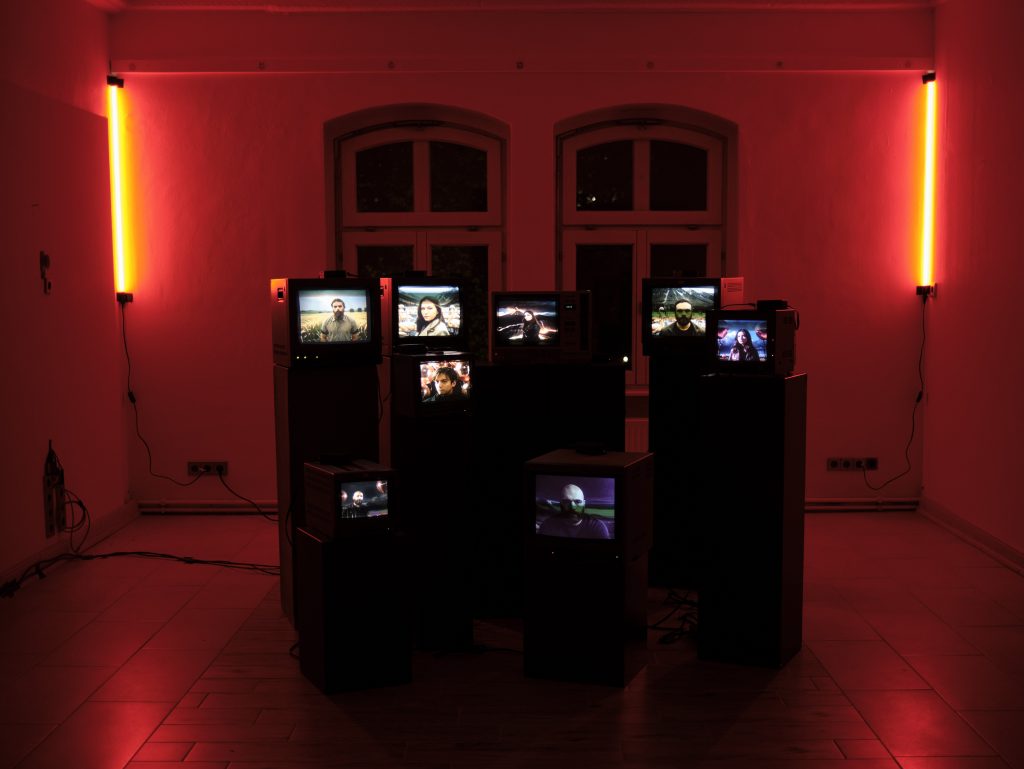
Installation view of Ego (2023) by MOTS. Photo: courtesy of MOTS.
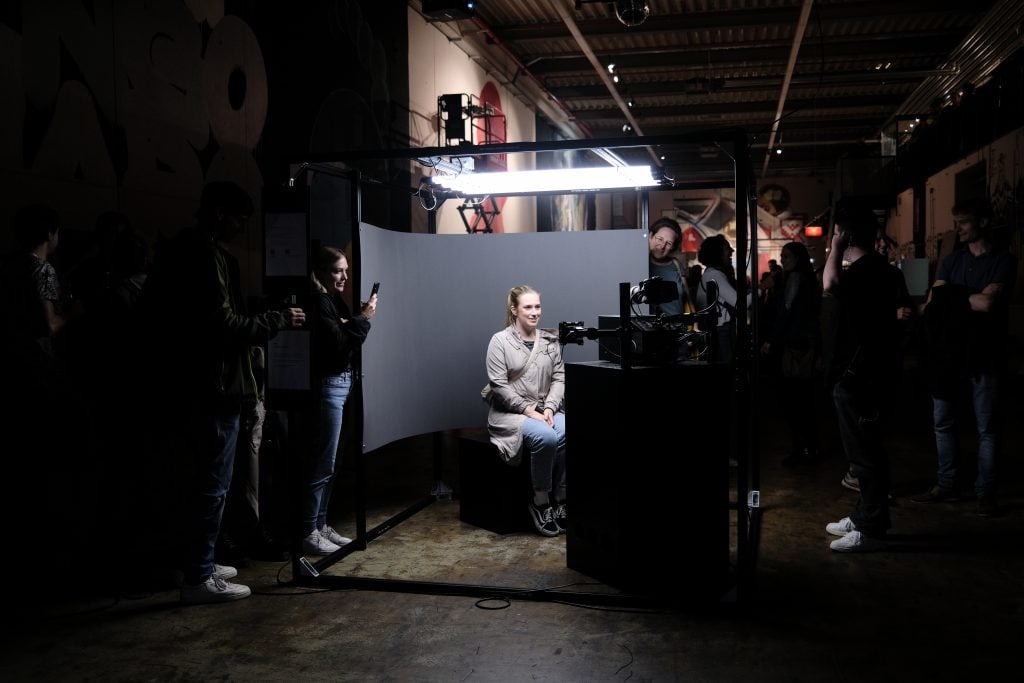
Installation view of The Confessional (2023) by MOTS. Photo: courtesy of MOTS.
More Trending Stories:
Art Critic Jerry Saltz Gets Into an Online Skirmish With A.I. Superstar Refik Anadol
Your Go-To Guide to All the Fairs You Can’t Miss During Miami Art Week 2023
The Old Masters of Comedy: See the Hidden Jokes in 5 Dutch Artworks
David Hockney Lights Up London’s Battersea Power Station With Animated Christmas Trees
On Edge Before Miami Basel, the Art World Is Bracing for ‘the Question’
Thieves Stole More Than $1 Million Worth of Parts From an Anselm Kiefer Sculpture